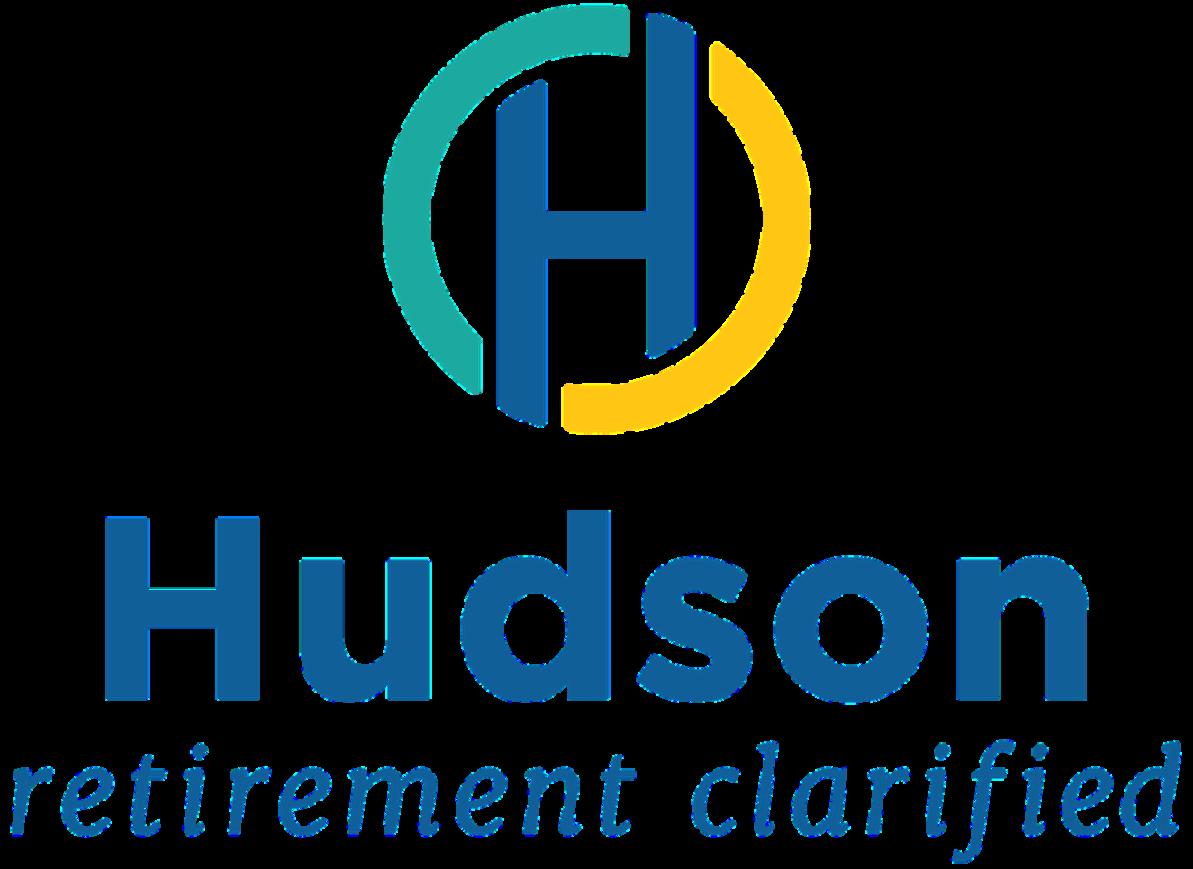For











If you’re reading this guide, it’s likely that you have recently reti many Physicians, this is a time that they’ve looked forward to for many years. While it is fun and exciting to think about life outside the hospital or office, it can also be rather unnerving. There are friendships and relationships built there that will last a lifetime. I'd also be willing to bet that in no time you're even going to miss those co-workers you may have not gotten along with as well in the past...

However, now it is time to spread your wings through different endeavors, whether that’s with volunteer work, spending more time with kids and grandkids, travel, or just more time for leisure! Let’s face it, what “Retire Meant” is no longer what “Retire Means” today. Retire used to mean sitting on the front porch in a rocking chair, but today’s retiree is much more active than yesterday’s retiree. You probably have goals you want to accomplish, and it's time to get started! Most folks tell us they're just as busy in retirement as they had been in their working years. The difference is they're now spending time doing what they want to do, not what they have to do. Sounds great, doesn't it?
One of the most daunting things that Physicians are faced with in retirement is managing their personal finances. At Hudson Wealth Management, we break these topics down in our B.R.E.A.T.H.E. formula: Budget and Income, Risk Score and Range of Return, Evaluation of Accounts, Asset Allocation to Asset Designation, Tax Minimization, Health Insurance, and Estate Planning. The main reason folks get a bit nervous lies in the many unknowns that exist. And for many, they may spend as much time in retirement as they did working! Seems hard to fathom, but it’s a real possibility that retirees face today.

While there will certainly be challenges as you navigate your way into retirement, there is much to look forward to as well. This survival guide was written with the hopes of providing you some action steps and direction on how to think about your finances as you enter retirement... so you can spend your time focused on the things that matter to you most. No scrubs or liability insurance necessary!
How many patients put off their lab work for weeks at a time? Procrastinating about financial matters is just as common these days, if not more so. Very few people enjoy going through the process of making the tough decisions that need to be made with regard to their personal finances. But it is a very important action step to take. Reading this guide is a step in the right direction, but the next step is to start implementing the planning strategies that are necessary.
This guide was not written to give you specific advice, but rather give you some general guidance about the decisions that you are faced with as you enter retirement. We hope you enjoy this survival guide!

As a Physician, you will most likely have two main sources of income in retirement: Social Security and the retirement account you’ve contributed to. Let's take a look at some ways to maximize these income sources:

This a huge topic! If you are a married person, there are over 80 different combinations of how and when to take Social Security! Here are 10 Top Tips for taking Social Security:
The longer you wait, the more you will receive. You could receive more collecting off of a current (or ex) spouse's credits. You could be penalized for continuing to work after collecting Social Security benefits.
Up to 85% of your Social Security benefits could be taxed. Widows and widowers are entitled to the higher earner’s full retirement benefit.
If you have not worked for 35 years, your benefits could be reduced significantly. Verify that your earnings history is accurate on the annual statement that you receive from the SSA. Correct any inaccuracies as soon as possible.

If your spouse has a pension based on his or her life only, you may wish to consider delaying receiving benefits as long as possible so that you get the maximum benefit for your lifetime.

Don’t confuse Medicare with Social Security. Medicare always starts at age 65 (assuming you are eligible), while your full retirement age with Social Security has a moving target.
If you are divorced and receiving benefits based on your ex-spouse’s earnings record, those benefits will stop if you remarry.
Learn About Social Security Maximization ReportsMany of you have been fortunate enough to contribute to retirement accounts along your life's journey, whether it was through your employer, something you set up on your own, or both. Deciding how to take wise distributions from these accounts is an art in retirement!
With traditional IRA's, as well as work-related defined contribution plans such as 401(k)s or 403(b)s, you will be likely penalized for withdrawals before 59 1/2. Whether you want to or not, you will have to take money out of these accounts once you are 72.

Withdrawals from these accounts are taxed as ordinary income, and could also cause taxation on your Social Security benefits.


Roth IRAs allow you to take revenue that does not count as taxable income. Annuities may be a great way to create a guaranteed income stream for life. Annuities could be a great tool for creating tax-deferred growth that is not available with other retirement planning tools.
Whew! That was a lot of information! (I think your brain just grew, don't you?) There has been a lot of talk as of late on Roth Conversions and "Back Door" Roth IRAs. To learn more, check out the link below:


As a Physician, you certainly know about taking risks! I’m sure you’ve seen your fair share of patients who took inappropriate risks and ended up in your office. Retirement is a different story, though! Here are 4 Questions to Ask to Determine Your Risk Tolerance:
#1: What is your age?
Typically speaking, the younger you are the more risk you can take. If something goes wrong, you have more time to make up for any losses. How long until you retire? The closer the date gets, usually the more conservative you should become.
#2: How comfortable are you with Risk?
Do you drive with a lead foot, roll the dice at the casinos, and like to skydive? You are probably OK with taking on a little risk in your portfolio. Are you a conservative person who fears the unknown and likes to keep a consistent schedule? You may want to risk very little. Knowing your comfort level is a key to managing risk and expectations for your investments.


#3: What is the purpose of the money?
If you are saving for a down payment on a house that you plan to buy within the next two to three years, you certainly don’t want to be aggressive with your investments because you are going to need that money soon. In the same regard, if you are building your nest egg for retirement, which is 10 years away, you can probably increase your risk a bit. Knowing the purpose behind the money will help you determine your time frame, which helps determine the appropriate amount of risk you should be taking.
Click here to find your true risk score
#4: What do you do when things go wrong?
As a Physician, you've always kept your cool on the job. Being calm under pressure with your finances is equally important. Inevitably, markets will decline as it’s the nature of the beast. Sticking to a course of action is a best practice when it comes to investing. This is not to say that you should never change your plan or your risk tolerance, but if you are prone to making emotional decisions dependent on how you feel rather than sticking to something to accomplish a goal, then you may want to scale back your risk.



This choice could be the best one for you, but it should not be made by default. There could be some possible downsides to this decision. First of all, you could be paying higher fees than you need to. Over time, these fees can really add up! Fees are not inherently bad; however, you should get “something” for the fees you are paying. (Not just retirement target date funds with rarely any guidance). Secondly, your investment options are usually very limited. The idea behind having very few choices is to try and streamline and simplify investment choices for the “every day” Joe. This concept is not as detrimental to folks in their 30’s or 40’s, or even 50’s. However, in retirement, where funds eventually will be distributed and not added to, limited investment choices are usually not the best option. Given a choice, most folks would rather have something more specialized than a blanket plan and advisor that's responsible for thousands of employee accounts.
Many consider cashing out their 401(k) account to take a lump-sum distribution. This choice, on initial thought, could be quite tempting! You could do those renovations to your home that you have been putting off. You could surprise your wife with her very own “she shed,” or take that dream trip to Hawaii. You “could” do a lot of things, and the money could be gone quite quickly. However, depending on the amount in your 401(k), there could be serious tax consequences. You could end up handing over a large portion of your account to "Uncle Sam" by not being aware of how taxes will affect this distribution. Also, once the money is spent, it is gone.
Everything continues to increase in price and oftentimes Social Security will not keep up with inflation. You could be robbing your future self of the money needed years from now!


The more common option that Physicians consider is to roll over their 40 into an IRA. IRA stands for Individual Retirement Account and allows its owner to continue to have their investments grow tax deferred. This opti also saves participants from the problems that could occur with the first two options. In making this decision, you can be more in control of the fe that you are paying. You will have many more options as to how your mo is invested. You will be more aware of the risks that you are taking. Choosing to roll over your 401(k) is usually the best way to get comprehensive individualized planning for the life of your retirement.

Designation, if done correctly, can be a beautiful thing! Maybe you've worked on a unit in a hospital where all of the Physicians, Nurses, and Techs are working for a common goal, where each member does what needs to be done. The result is perfection...usually. The same is true for your retirement accounts! Each account should have a "job." Here are 4 ways you can delegate your accounts to best leverage the money you have saved for retirement:


Being a Physician has never been a "get rich quick" endeavor. You may need a bit of a "bump" in income at some point. Setting aside an account specifically designed for this task can give you peace of mind knowing that if you ever need more income, you are prepared. A fixed indexed annuity with an income rider could be a good vehicle to provide extra revenue. There are also market-based accounts designed to provide a specific percentage of distribution each year.

We all know someone who has had to receive long-term care, whether it is their own home or in a nursing facility. Many retirees thing the only option that is available is a policy with a premium that increases every year. We are here to tell you there are other options out there for Physicians! Asset-based long term care policies can protect your estate regardless of whether you ever need long term care or not.
Is it important to you to leave something behind for your children, grandchildren, or charity? If that is the case, don't leave it to chance! This does not mean having to pay thousands in premium a year. Could you he current cash value in a policy you already have, or get a single ife insurance policy, or place funds into an annuity with a death der? Could you do all of this while still having some access to course you can!
See what we did there? Let's not forget all unexpected expenses in retirement! Of course, emergencies arise, so it is important to leave yourself room to deal with those unfortunate events.


To figure out if this applies to you, you're going to have to do a little math.
Find your provisional income. Your provisional income is equal to the combined total of 50% of your Social Security benefits, your tax-exempt interest, and the other non-Social Security items that make up your adjusted gross income.
For single people, your Social Security benefits aren't taxed if your provisional income is less than $25,000. The threshold is $32,000 if you're married and
filing a joint return.
If your provisional income is between $25,000 and $34,000 for a single filer, or from $32,000 to $44,000 for a joint filer, then up to 50% of your Social Security benefits may be taxable.


If your provisional income is more than $34,000 on a single return, or $44,000 on a joint return, up to 85% of your benefits may be taxable.
Converting a portion of your retirement accounts to a Roth IRA can be thought of as prepaying the taxes. Many employ this strategy in anticipation of rising taxes or income in retirement. After the conversion, the account grows tax free...
Yes! Even the earnings! Click here to go to a Roth IRA Conversion worksheet and see if it could makes sense for your situation.


You should review your options each year as the plans change. Here are your that spell out exactly what your coverage options look like:
If you're under 65, you have a few options:
Continue your current coverage through COBRA until it runs out(18 months). Find a plan on the Health Insurance Marketplace. Join your spouse's employer-sponsored plan (If applicable).

It's nice to have options! Everyone's situation is different, and if you've been fortunate to be able to retire before you turn 65, it's important to explore each possibility to find the best choice for you and your family.
Original Medicare consists of a few different parts working together. Part A covers hospitalization and was paid for with your FICA taxes in your working years. Part B is paid for by you each month and covers your outpatient procedures, doctor's visits: anything your doctor performs in the hospital or in the doctor's office. You also need prescription coverage, known as Part D. These three components do not provide 100% coverage, so it’s highly recommended to pick up a standardized Medicare Supplement (or Medigap) policy to cover what original Medicare does not.
Medicare Advantage plans are more similar to the Group plans you had while working. They can be HMOs or PPOs and have networks of doctors that you’re encouraged to stay within to have the best costsharing possible. They have built-in co-pays and coinsurances for different procedures, with maximum out-of-pocket amounts ranging from $4,000-$10,000. These plans can vary greatly from carrier to carrier, so it’s important to look into all options available.

The final step in planning for your retirement is making sure that your final wishes are clearly spelled out and that your family will have the easiest transition possible when you pass away. Please note that Hudson Wealth Management Representatives are not attorneys and this is not meant as legal advice. For advice related to your specific situation, please contact a qualified estate planning attorney.
Most of us have heard horror stories about estates going through probate. Probate is a legal process where your assets are distributed upon death. If you have a will in place, the court uses it as a guideline, but wills can be contested and they are not a guarantee that your wealth will be distributed as you intended. Here are four types of accounts that can skip probate if the beneficiaries are listed appropriately:
A retirement account won’t go through probate unless no (living) beneficiaries are named. Life insurance proceeds will also skip probate provided beneficiaries were named (assuming the beneficiary wasn’t your estate).
If you have a payable on death (POD) or transfer on death (TOD) on your bank


Typically, assets held jointly with rights of survivorship, community property, or account, then it will generally bypass probate as well. tenancy by the entirety will also avoid probate if the joint owner is also living.

We advise you to seek the counsel of an attorney for the following end of life decisions :
Living will: A living will spells out what you would prefer in terms of your medical treatment (such as resuscitation and organ donation) when you become unable to communicate those wishes.
Power of Attorney: Appointing a financial Power of Attorney will allow a trusted agent to legally handle your financial affairs should you become incapacitated.

better halves are Nurses almost makes it hard not to! Spending most of our time with individuals who have dedicated their lives to helping others when they are sick and recovering has rubbed off on us. We want to be able to give back to those who give each day without even thinking twice about it.

As financial advisors, we enjoy turning the tables on Physicians (in a good way!) and allowing them to be the ones to receive considerate and deliberate advice and expertise. We want to provide a "treatment plan" to help everyone plan for their own personal retirement dreams and goals. Simply put, we want to help Physicians make the best-educated decisions possible in retirement.
Every client of ours has a retirement plan that is geared towards their needs, hopes, and desires for the second half of their financial lives. Social Security and Pension Maximization, Tax and Risk Management, Medicare Solutions, Long Term Care Options, Portfolio Assessment, Wealth Management…are all aspects of retirement that need to be considered. And, of course, we have a good time doing it!
Just like you, I am passionate about seeing my patients (or clients) succeed. Let’s learn about what would be best for YOUR retirement together!

Just for you: A 15-minute "Retirement Check-up" Phone Call!
Featuring:
Time to discuss any questions and concerns in each of the BREATHE Formula areas. Answers any other questions/concerns that you have. And a Bonus! Your Individual Portfolio Stress Test, showing you:
a) The fees you are paying.
b) How your current accounts would have performed in different market conditions.
c) Your Portfolio Risk Score & how it aligns with your Personal Risk Score.
I hope you enjoyed this Retirement Survival Guide, and if you schedule a call, I look forward to chatting with you!

